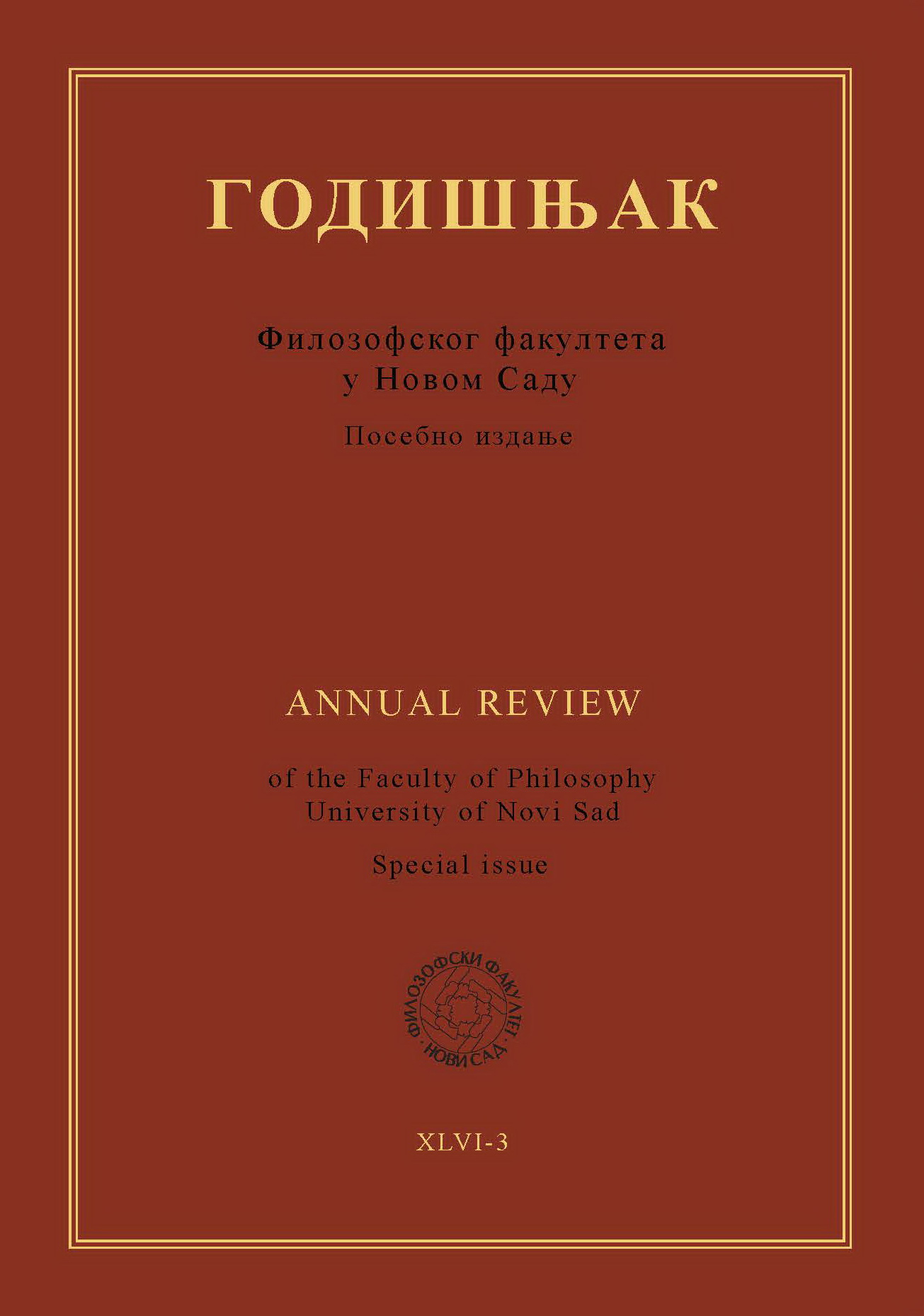DIONYSUS IN NEW YORK: FRAGMENTS OF THE DIONYSIAN MYTH IN ONYSOS LE FURIEUX BY LAURENT GAUDÉ
Main Article Content
Abstract
Onysos le furieux is the first play written by contemporary French writer Laurent Gaudé. Written in 1997 and published in 2000, this epic monologue offers a new reading of the Dionysian myth. Sitting on the platform of a New York City subway, Onysos speaks and takes us on a journey through time and through his story, which is, in reality, that of Dionysus – a little less of a god, a little more of a man. The writer's intention is not to rewrite or adapt one of the many classical variations of the Dionysian myth, but to weave a new mythological space, his own imaginary antiquity, from heterogeneous and amalgamated mythical particles. Based on Philippe Walter's mythocritique, in this work we will analyze the mythemes, the smallest mythically significant units of narration, which constitute the puzzle of the myth in Onysos le furieux. We will try to retrace the borrowed mythemes from the different classical variants of the myth of Dionysus (the tragic birth, the dismemberment, the descent into Hell, the episode with Proscumnos, Dionysus transvestite, etc.), as well as the constructed mythems, written by the author.
Downloads
Metrics
No metrics found.
Article Details

This work is licensed under a Creative Commons Attribution-ShareAlike 4.0 International License.
References
Augé-Rabier, C. (2013). Méduse à trois têtes: de la polyphonie au tragique. Médée Kali de Laurent Gaudé. MuseMedusa, 1. Disponible sur http://musemedusa.com/dossier_1/auge-rabier/
Brunel, P. (2000). Dictionnaire des Mythes Littéraires. Paris : Éditions du Rocher.
Brunel, P. (1992). Mythocritique, Théorie et parcours. Paris : PUF.
Chauvin, D.–Siganos, A. & Walter, Ph. (2005). Questions de mythocritique, Dictionnaire. Paris : Éditions Imago.
Detienne, M. (1981). L’Invention de la mythologie. Paris : Gallimard.
Durand, G. (1992). Figures mythiques et visages de l'œuvre: de la mythocritique à la mythanalyse. Paris : Berg international, Dunod.
Durand, G.–Chauvin, D. (éd.) (1996). Champs de l'Imaginaire. Grenoble : Ellug. DOI: https://doi.org/10.4000/books.ugaeditions.5127
Eliade, M. (1963). Aspects du mythe. Paris : Gallimard.
Euripide. (2005). Les Bacchantes. Traduction Jean et Mayotte Bollack. Paris : Les Éditions de Minuit.
Gaudé, L. (2000). Onysos le furieux. Paris : Actes Sud-Papiers.
Heidmann, U. (2010). Mythes, littératures, cultures. Quelles méthodes pour comparer les (re)configurations des mythes gréco-romains? Lausanne : CLE-UNIL.
Lacarrière, J. (1998). Au cœur des mythologies. Paris : Gallimard, Collection Folio.
Onysos le furieux de Laurent Gaudé. Notes de mise en scène par Bruno Ladet. Théâtre contemporain. Consulté le 29 janvier 2021, disponible sur http://www.theatre-contemporain.net/spectacles/Onysos-le-furieux-8003/ensavoirplus/idcontent/35061
Leonardy, E. (1994). Mythe et littérature. Louvain-La-Neuve : Collège Érasme/Éditions Nauwelaerts.
Moingeon, Ph. (2007). Introduction à la mythologie contemporaine. Groslay : Éditions Ivoire-Clair.
Rubino, G. (éd.) (2006). Voix du contemporain. Histoire, mémoire et réel dans le roman français d’aujourd’hui. Roma : Bulzoni.
Vernant, J.-P. (1980). Le Mythe au réfléchi. Le Temps de la réflexion, 1. Paris : Gallimard. 21-25.
Viart, D.–Vercier, B. & Evrard, F. (2008). La littérature française au présent : héritage, modernité, mutations. Paris : Bordas.
Viart, D. (2013). Anthologie de la littérature contemporaine française : Romans et récits depuis 1980. Paris : Armand Collin.
Vlaškalić, N. (2020). Mitska slagalica: ukršteni mitovi u delu Medeja Kali Lorana Godea. In: Gudurić, S.–Radić-Bojanić, B. & Mutavdžić, P. (éd.) (2020). Jezici i kulture u vremenu i prostoru, IX/2. Novi Sad : Filozofski fakultet. 39-47.
Walter, Ph. (2008). La Fée Mélusine. Le Serpent et l’oiseau. Paris : Imago.




